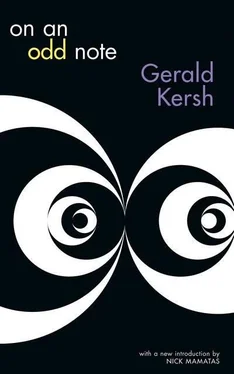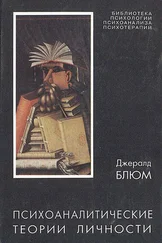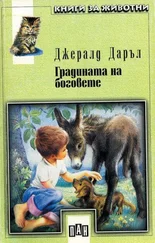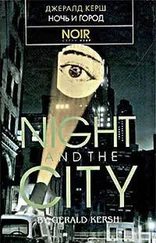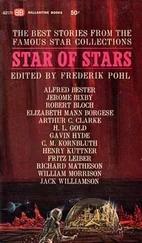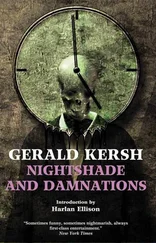“My master was a count. We had Arab horses.”
“I used to drink hot brandy on cold nights. I could do with some now, by heaven I could. Do you know what happened here last winter?”
“What?”
“A woman was found frozen right here, with a newborn baby in her arms. She was a lady, too.”
“Lady!”
“Yes, here she sat, blue and stiff, with this kid, not two hours old, dead in her arms.”
“If she was a lady she wouldn’t have been here. She’d be at home, by the fire, that’s where she’d be.”
“You wouldn’t understand, friend Bicskas. Perhaps there was a disgrace. I’ve dealt with many a noble family, and I understand things like that.”
“Remember the wolves?” said Bicskas. “The winter when the wolves came down here and they sent fifty soldiers to kill them off? Snap-snap! All they found next day was fifty rifles in the snow. Not even a bloodstain; they’d lapped it all up. They’re devils, wolves.”
“It was sixty soldiers.”
“Fifty.”
“I’ve been coming here for thirty years, so I ought to know.”
“I’ve been here off and on for forty years.”
“I can read and write,” said Probka.
“I can read capital letters.”
There was silence. Then Bicskas laughed and said, “The sun looks like blood.”
“I ought to know what goes on round here,” said Probka, offended. “It’s house and home to me, this stone.”
“Well, damn it, so it is to me, too. It’s a place . ‘Where now?’ you say; and then you say, ‘Let’s go to the stone.’ That’s how it is.”
“You can sit here, sleep here, talk here, eat here. It’s a club. You can also write your name down. Then there’s sort of something . I cut my name over there.”
“I did not exactly cut my name,” said Bicskas, “but I made a cross.”
“Let us try to sleep,” said Probka.
By daybreak four more tramps had come. There was a woman who did not resemble a woman, and a man who did not look like a man; there was a bundle of rags wrapped in an old sheepskin, that laughed and smoked, accompanied by his wife who sat in impenetrable silence. They rested, fitting their bones into the mossier indentations of the stone.
“But who is this who comes?” asked Bicskas, suddenly.
A train of carts, followed by a carriage, rolled slowly down the north fork of the road. The tramps, watching, saw that there were also men in uniform, riding horses.
A giant in blue and silver, with a mustache quite twelve inches from tip to tip, rode up to the stone, surveyed the tramps with a supercilious scowl, wrinkled his nose and said, “Off.”
“Sir?” said Probka.
“Clear out.”
Bicskas snarled.
“Off!” roared the giant with the mustache. The tramps dragged themselves away. Only Probka and Bicskas remained.
“We insist on our rights,” said Probka. “This is our stone.”
The horseman drew a revolver, and said, “Two seconds.”
“If you shoot it’s murder,” said Probka.
“Get out!”
Probka went away. Bicskas followed him. From a distance they watched. The shapeless thing in the sheepskin, speaking for the first and last time, said, “I cut a J , for Janos, in the right-hand corner, with a horseshoe nail, for luck. And an E for Etelka. That’s my old woman.”
“They’ve brought up a crane,” said Bicskas. “They’re taking the stone away. By God! Let’s . . .”
“Against guns?” said Probka. “I think they’re only turning it over.”
The woman who did not resemble a woman shrieked suddenly. “It moves!”
Slowly, encumbered by the weight of all its centuries, the stone moved. The earth cracked. Pale insects that lived out of the daylight writhed, terrified, back into the ground. The stone groaned. The crane groaned. The workmen shouted. The watchers held their breath. Probka prayed, “Oh God, let the chains break!”
But the chains held. The bottom of the stone became visible, black with earth. The tramps cried out. They felt in the soles of their feet the jolt of the huge stone teetering on end. A workman yelled, “Hold!” The stone stood, gently rocking. An old gentleman said, “Here. Now.” Soon, having propped up the stone with beams, men began to dig. When night fell, flares were lit. The men dug till dawn. More men came with picks and spades. The waiting tramps, now fifty strong, muttered among themselves.
From out of the newly dug pit came a shout, “Eljen! Eljen!” It was a cry of triumph. The chains clanked again. Men groaned. “Hup!” Strange objects were coming out of the ground into the light—dull, dirty pieces of armor; huge pots and troughs; battered cups; bent disks—masses of old, broken metal of unfamiliar shapes and unwieldy sizes.
Probka, bowing low before an armed guard, said, “Honored sir, be graciously pleased to tell me why this old iron was buried here.”
“That is not old iron,” said the guard. “That is pure gold. It is one of the treasures of the Scourge of God, Attila. It is worth God knows how many millions.”
“And for seven hundred years we have been dying of hunger here,” said Probka. Nothing more was said. Bitterness was too profound for expression. There were no words, even in the frightful vocabularies of the damned.
The tramps camped about the hole. When the diggers had gone away, they probed the pit with their fingers, hoping to find some forgotten coin or jewel. But they found nothing, except worms and stones, and a heavy smell as of the grave. And so, at last, they went their ways over the endless, wind-tattered plain; and although it covered a treasure the plainsmen still call the stone The Beggars’ Stone, in spite of the fact that since it was disturbed no beggar has rested there.
By 1943 the importance of old rags, bones, bottles and scraps of waste paper had been drummed into the head of England so thoroughly that salvage became a neurosis, a delirium, something like a disease. The British people were compelled to realize that waste cost lives. Merchant seamen risked everything in bringing to our shores cargoes of wood pulp, foodstuffs and metals. If you kept a book you did not need or burned a love letter, lost a hairpin, or threw an inch of potato peel into the wrong receptacle, you were made to feel that you had murdered a sailor. There was a formidable drive to round up hitherto unconsidered scraps—especially scraps of paper. The government offices, and even the secretive old-established lawyers of Bedford Row and the Temple let go their ancient, outdated documents. The authorities had solemnly promised that private papers would be shredded and pulped without being read.
In those brave days I was the war correspondent for The People . One afternoon, a little while before I went to join the American Ninth Air Force at Saint Jacques, I called at my office and found the passage blocked with bins and baskets and bundles of waste paper, put out for the salvage men. (For all I know to the contrary I am writing this on a re-hashed bit of that same paper). There were tens of thousands of letters, unclaimed typescripts, execrable poems in manuscript, usually in a feminine hand, stale cablegrams, musty galley proofs, preposterous books sent for review that were not worth selling or giving away . . . the inevitable papery detritus of an active but old-fashioned office.
I number among my weaknesses an incurable habit of rummaging among rubbish heaps. I must poke my fingers into everything. So I stirred the surface of the foremost basket and, having glanced at a letter on hand-made paper from a lord who had had a revelation of the end of the world, picked up an unbound, badly sewn pamphlet printed by Partridge of Paternoster Row in London, 1747.
Читать дальше
